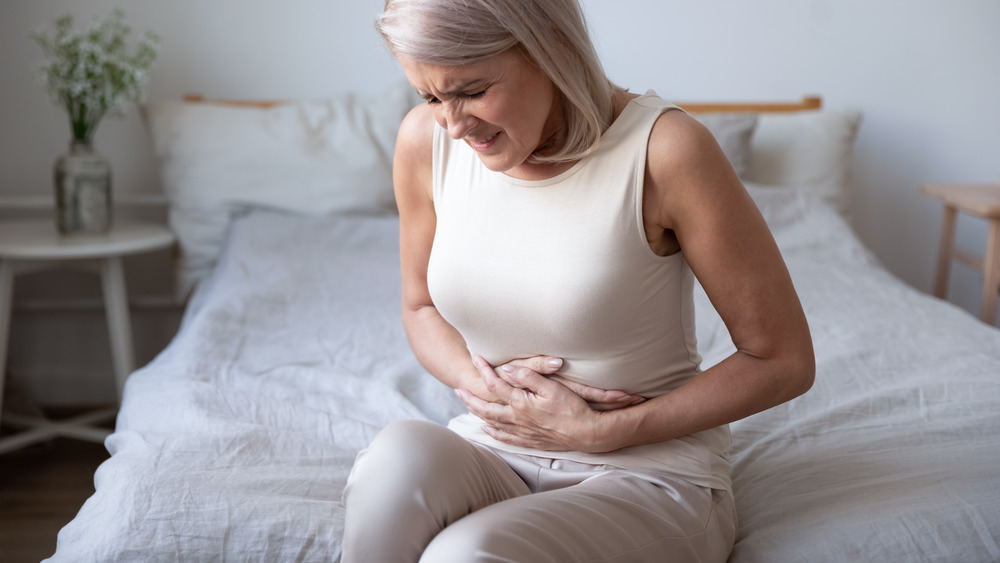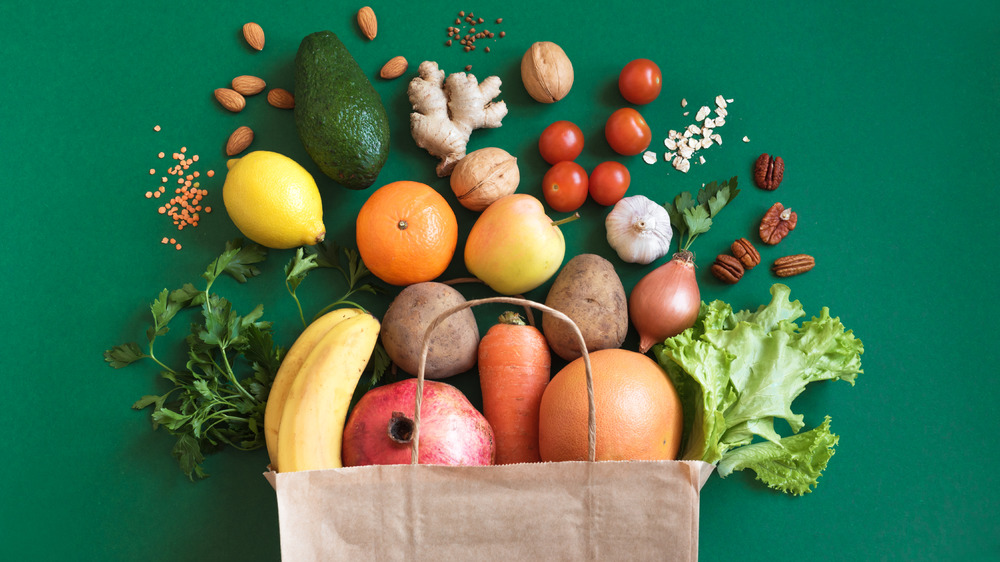How To Tell The Difference Between COVID-19 And Food Poisoning
COVID-19 can be difficult to diagnose without a test because the virus shares many of the same nonspecific symptoms with other common illnesses. In addition to mimicking the symptoms of a cold or flu, COVID-19 can also feel like food poisoning (via Bustle). COVID-19 is a respiratory illness caused by respiratory droplets infected with SARS-CoV-2. Food poisoning, on the other hand, is a foodborne illness that can be caused by a bacterial infection or viral gastroenteritis. Both illnesses can cause inflammation in your gastrointestinal tract, which can result in nausea, vomiting, and diarrhea.
While these shared symptoms may make it difficult to distinguish between the two, it is important to also take note of their differences. Unlike food poisoning, COVID-19 can also cause respiratory symptoms, like congestion or a runny nose, and a loss of taste and smell. If you have any of these symptoms alongside an upset stomach, you should contact your doctor to get tested for COVID-19.
How to treat gastrointestinal symptoms of COVID-19
If you have been diagnosed with COVID-19 and are also experiencing gastrointestinal symptoms, the simplest way to treat your symptoms is to stay home, rest, and drink plenty of fluids. If that doesn't work, however, you may need to change your diet or talk to your doctor about which medications might help relieve your symptoms (via Verywell Health).
If you are vomiting or experiencing acid reflux, you can try taking Tums or drinking electrolyte-filled liquids, like Gatorade, to help settle your stomach. On the other hand, if you are experiencing more severe symptoms like persistent nausea and diarrhea, your doctor may prescribe antidiarrheal and anti-nausea medications to help ease your discomfort.
Changing your diet may also help relieve more mild gastrointestinal symptoms like abdominal pain, gas, and bloating. Since sugar and processed foods can cause inflammation in the gut, it might help to cut those out of your diet and focus on only eating clean ingredients. "Going back to the basics definitely helps," Dr. Reem Sharaiha, a gastroenterologist in New York City, told Verywell Health. "Avoid things like onions, broccoli, garlic, and things that are going to give you more gas...eat something that will calm your stomach — nothing too spicy or heavy."


